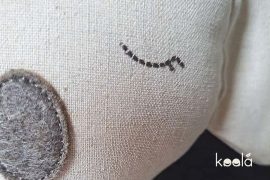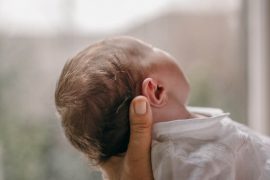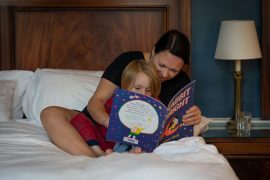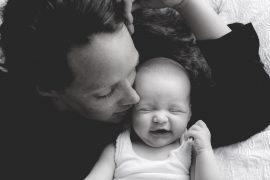If you are breastfeeding, co-sleeping, responding to your child, and all those lovely ‘crunchy’ things, you are doing what our species has evolved to do. Remember that the changes we have placed on infant sleep do not stem from their wellbeing, but from cultural changes that reflect a priority being put on industrial work and not family. Children must now fit into a society that values productivity and getting them to seem more independent is the overarching goal, not their overall wellbeing. For more on this (as it’s a huge topic), I strongly recommend Dr. Cecilia Tomori’s book Nighttime Breastfeeding.
The Third-Variable Problem
Despite all our platitudes to the opposite, we really seem stuck in our culture thinking that all babies and infants are the same and will/should sleep the same, but we forget that we can’t just compare sleep and babies as if they are the only two variables in the equation. This ignores so many variables that are linked to sleep, including:
- Health-related issues
- Feeding-related issues
- Temperament
- Natural sleep cycles (e.g., early risers versus late night owls)
- Stimulation during the day
- Sensory sensitivity
The first three in particular are huge factors that impact sleep and should be regularly considered by families if trying to make comparisons.
The family with the easy-going baby is going to have an easier time with sleep than the family with the high-needs baby. The baby with a tie or latch issue will wake more to feed than the baby without it.
The toddler with sensory issues will struggle with sleep more than the toddler without these same issues.
***
We have to stop trying to think our child should be more like others and look at who our child is and how we can work with them and accept them for who they are. Someone telling you that your kid should be more like theirs is asinine. You are raising your child. If they can’t help but give you advice, I strongly recommend being aware of something your child is doing that theirs isn’t and telling them they should really be working on that. You can see how much they enjoy that one.
References
[1] Tikotsky L, Volkovich E. Infant nocturnal wakefulness: a longitudinal study comparing three sleep assessment methods. Sleep 2018; in print: https://doi.org/10.1093/sleep/zsy191.[2] Camerota M, Tully KP, Grimes M, Gueron-Sela N, Propper CB. Assessment of infant sleep: how well do multiple methods compare? Sleep 2018; 41: https://doi.org/10.1093/sleep/zsy146.
[3] Rudzik AEF, Robinson-Smith L, Ball HL. Discrepancies in maternal reports of infant sleep vs actigraphy by mode of feeding. Sleep Medicine 2018; 49: 90-98.
[4] Volkovich E, Bar-Kalifa E, Meiri G, Tikotzky L. Mother-infant sleep patterns and parental functioning of room-sharing and solitary-sleeping families: a longitudinal study from 3 to 18 months. Sleep 2018; 41: https://doi.org/10.1093/sleep/zsx207.
[5] Dr. McKenna’s Sleep Site with citations can be found here: https://cosleeping.nd.edu/.
Originally published here.
Tracy Cassels, PhD is the Director of Evolutionary Parenting, a science-based, attachment-oriented resource for families on a variety of parenting issues. In addition to her online resources, she offers one-on-one support to families around the world and is regularly asked to speak on a variety of issues from sleep to tantrums at conferences and in the media. She lives in Prince Edward County, Ontario, Canada with her husband and two children.










